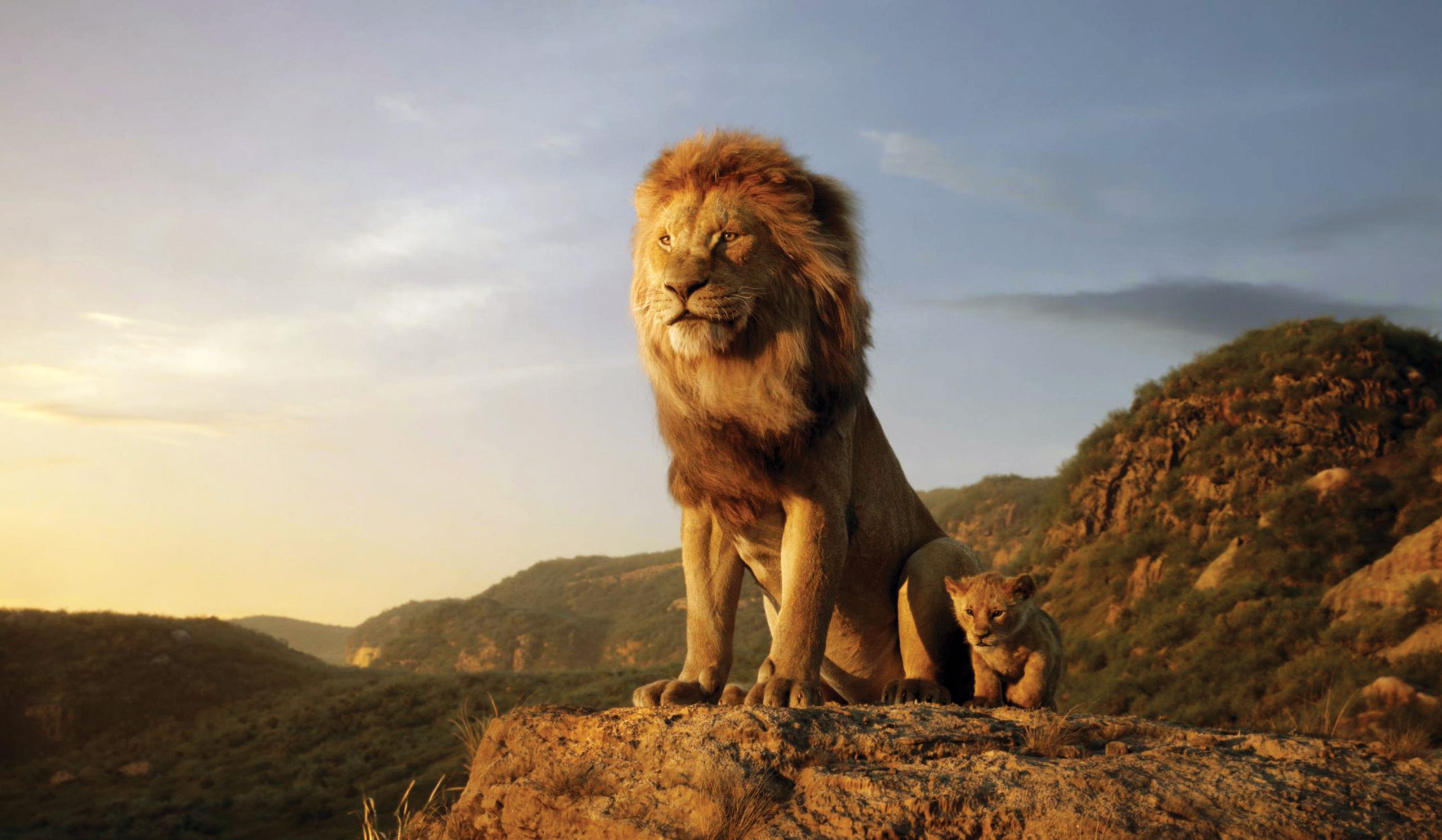
A time traveller arriving in 2019 from two decades ago wouldn’t experience much of a culture shock from the cinema listings. New instalments in the Men in Black, Godzilla, Child’s Play and Toy Story franchises would help them acclimatise, as would Disney’s remorseless campaign of photorealistic, computer-generated remakes of its animated back catalogue. Now that the trend is in full swing, it’s probably time to decide on a collective noun for such movies. An inevitability? A despair? A flog?
Though the studio has plundered older material such as The Jungle Book and Dumbo, remakes of its Nineties titles are providing rich pickings, with Beauty and the Beast (over $1.2bn worldwide) the most successful yet and Aladdin ($960m) not far behind. Mulan is forthcoming, and now there is The Lion King, which boasts such an intense degree of photographic detail that the film resembles a David Attenborough documentary with show-tunes.
The 1990s were an important turning point for Disney. Following a string of flops in the 1980s (put it this way: there won’t be a CG remake of Basil the Great Mouse Detective), the studio’s fortunes were restored by The Little Mermaid, released in the US at the end of 1989 and in the UK a year later (a live-action remake of this film has just been announced). It was also the decade in which Disney attempted its first live-action upgrade. The result, 101 Dalmatians, was a hit in 1996 but no one had worked out quite what to do with the dogs themselves, who ended up being mutes in their own movie.
Animals in The Lion King never shut up. There is the monarch himself, Mufasa, who can’t open his mouth without imparting the wisdom of the ages. Then again, the rumbling bass of James Earl Jones (the only member of the 1994 cast to reprise his role here) wasn’t really made for small talk. Mufasa’s brother, Scar (Chiwetel Ejiofor), is understandably bitter that his sibling’s first-born has leapfrogged – leap-lioned? – over him in the line of succession, and plots to grab the throne for himself. The Lion King always had delusions of Hamlet, but it’s Hamlet with a Gertrude who resists Claudius, and a prince who gets the job done with a minimum of procrastination. No Hamlet at all, then.
Simba, the heir, is voiced as an adult by Donald Glover, whose Hamlet would surely be worth witnessing. But restaging a superannuated property such as The Lion King can leave decent performers with nothing to play with, no meat on the bone. It’s particularly wasteful to cast Beyoncé as Nala, Simba’s future wife, when the character only exists to encourage him towards his destiny. Stand by your lion and all that. If you’ve gone to the trouble of hiring Beyoncé, why not retool the project around her as The Lion Queen rather than reviving a retrograde tribute to inherited male privilege? Instead she has to suffer the indignity of singing “Why won’t he be the king I know he is?/The king I see inside?” It’s an awfully long way from “You ain’t married to no average bitch, boy.”
There are occasional signs that Jeff Nathanson’s screenplay has tried to move with the times. The original Scar had a plummy accent and a preference for rough trade (if he didn’t quite feast with panthers, hyenas were the next best thing), which left little doubt that he was a friend of Dorothy, or at least the Cowardly Lion. But one vaguely homophobic exchange from the first film – when Simba says: “You’re so weird!” and Scar purrs: “You have no idea” – has been tweaked so that sexuality is no longer the subtext. Now Simba, realising that he will one day rule over his uncle, asks instead: “How weird is that?” and receives the same withering reply from Scar. (The line doesn’t quite work, but A for effort.) And thank goodness the hyenas have stopped goose-stepping in Nazi formation, as they did in the animated version – a mind-boggling bit of bad-taste Disney to set alongside Song of the South.
The 25 years between Lion Kings have had an unintended cooling effect on other elements. There was no I’m a Celebrity… Get Me Out of Here! back in 1994, so the scene where Simba eats gooey, squirming bugs carried more novelty value then. Fondness for Timon the meerkat (Billy Eichner) may also have diminished among British audiences since his species became the intolerable mascot of a price-comparison website.
Jon Favreau, the film’s director, was tentative about the use of musical numbers when he made The Jungle Book in 2016, but he embraces the Elton John-Tim Rice compositions here. While this is encouraging news for anyone who considers “Hakuna Matata” to be a banger, it does create its own problems. A film is freer when it isn’t lifelike: in animation, one tends not to gaze at a handful of characters singing on screen and ask where all those layered backing vocals are coming from. And when the antelopes and zebras look as authentic as they do here, it feels all the more perverse that they should rejoice in the birth of a cub who will soon regard them as takeaway meals at best.





